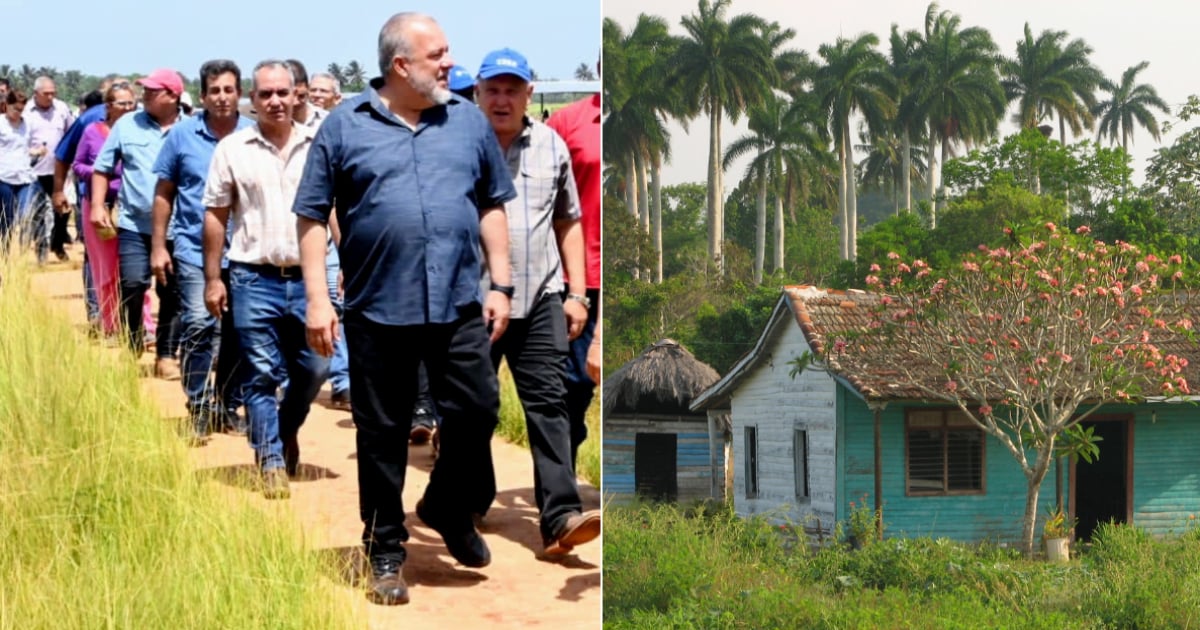The Cuban government has rolled out new limitations on housing construction on land granted in usufruct, aiming to address what it calls "irregularities in agricultural land constructions." According to Decree 105 from the Council of Ministers, published in the Official Gazette number 92 on September 23, these changes primarily impact farmers who received land parcels in usufruct and have built homes or made structural improvements.
This new decree amends Decree 350, which regulates Decree-Law 358 concerning the granting of idle state lands in usufruct. From now on, housing construction will be prohibited on several categories of land, including those within urban perimeters, lands earmarked for territorial and urban planning, lands designated for family self-sufficiency, and areas with environmental, defense, or national security considerations.
New Rules for Agricultural and Forestry Lands
The restrictions also extend to constructions on lands intended for agricultural or forestry development and other future projects. According to Cuban regime authorities, these measures aim to reorganize land use for planned development and protect areas designated for agricultural production.
Legalization of Existing Constructions
However, the regulation does provide for the possibility of legalizing constructions built between 2008 and 2023, provided they meet current legislation requirements and serve agricultural and forestry production purposes. Constructions in restricted areas for environmental, defense, and security reasons are excluded from this legalization.
The Ministry of Agriculture (MINAG) asserts that these changes are necessary due to numerous constructions on usufruct lands that failed to comply with legal formalities. The new regulation seeks to restore legality in these areas and prevent unauthorized buildings that don't meet land use requirements.
Impacts on Farmers and Agricultural Production
This measure follows the 2008 initiative to grant idle state lands in usufruct to boost agricultural production amid the growing inefficiency of state-run farms. Many farmers who received parcels have built homes and other structures needed to protect their crops and animals or to live close to their lands due to transportation shortages and the need for constant supervision.
Affected farmers will need to submit their constructions for review and possible legalization by municipal Territorial and Urban Planning authorities. If they fail to meet the requirements, the buildings will be included in the "Comprehensive Program to Combat Construction Illegalities" and may eventually face demolition.
Implementation Timeline
The reorganization and legalization process will take place over five years, starting from the decree's effective date on September 23, 2024. During this time, local authorities are required to survey all existing constructions on usufruct lands and assess their compliance with current regulations.
This move by the Cuban government aims to reorganize the use of state lands and ensure constructions adhere to established legal frameworks. However, it presents a significant challenge for farmers, who must adapt to new regulations while trying to maintain and protect their agricultural production in an increasingly restrictive environment.
